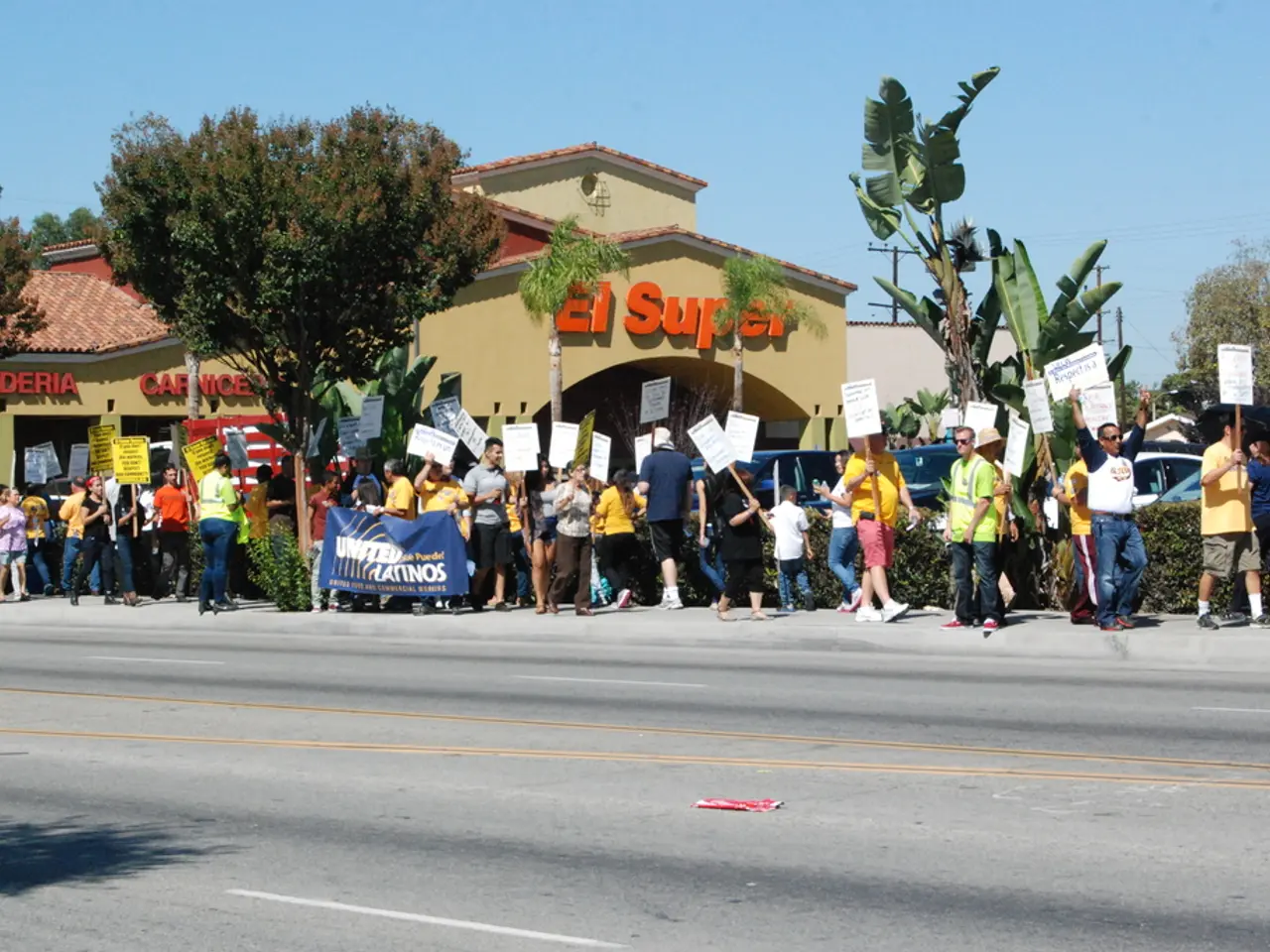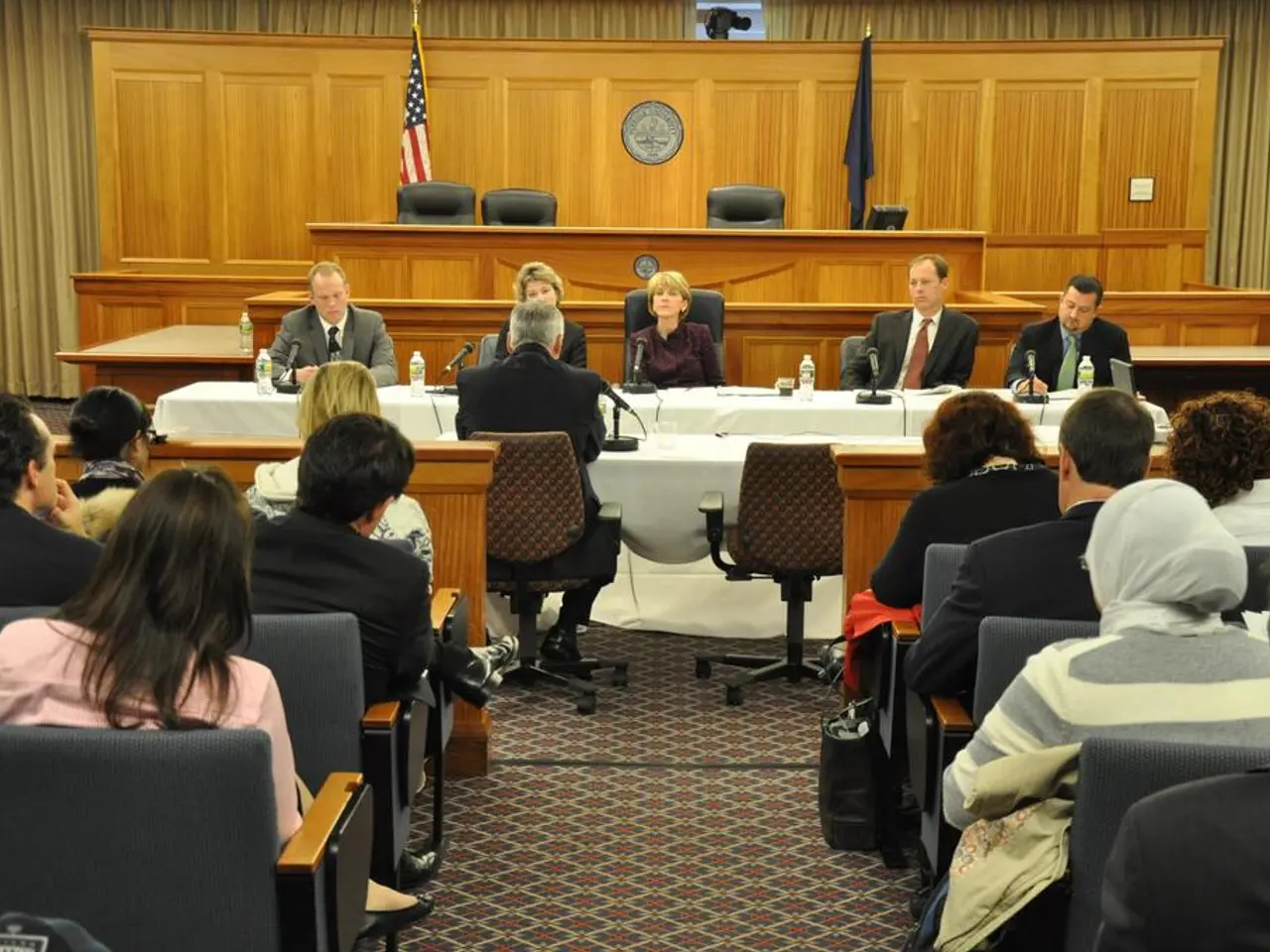Saskia Esken Steps Down as SPD Chief, Urges Party Unity
Abridged Statement by Esken: "I reject the appeal to nostalgia" - Refusing Mourning: Esken's Resolute Stand
Saskia Esken, the outgoing SPD leader, emphasized unity amidst changes, stating that unity had brought success in the past and should be key once again. She made these remarks at the party conference in Berlin, held after the SPD's disappointing performance in the election. Esken, without a cabinet post in the aftermath of the elections, expressed that she had no regrets about leaving the party chair.
She warmly thanked Olaf Scholz, affectionately referring to him as her chancellor, acknowledging the collaborative work they carried out. Esken admired Scholz for his warm heart, cool head, particularly in stressful situations, and his firm dedication to social democracy. However, Esken had not always appreciated Scholz's leadership style, as evident during the 2019 SPD leadership election when she and Norbert Walter-Borjans critiqued Scholz during their campaign.
The SPD's 2025 federal election saw abysmal results, achieving only 16.4% of the vote, the worst in 138 years. This outcome underscored grave challenges for the party in reestablishing a connection with its base and the wider electorate.
Despite planning to retire after this parliamentary term, Esken chose to run again in the 2025 elections, promising to keep influencing the party's trajectory. However, internal party tensions persisted concerning her leadership, with calls for her resignation due to public appearance lapses and mismanagement of party affairs.
During the conference, the air was thick with anticipation as the party began a transformation. While specifics of Esken's speech weren't recorded, the broader context revealed that her tenure has been marked by internal party disputes and decreasing influence, especially in the absence of a cabinet position and her decision not to seek re-election as party chair.
Bärbel Bas, who succeeded Esken as party chair at the Conference with 95% delegate support, openly criticized the harsh treatment of Esken during her tenure. Bas expressed the urgent need for solidarity and open dialogue within the party moving forward, suggesting a shift towards resolving internal conflicts and presenting a united front.
The SPD's relationship with Scholz and the broader ideological rifts within the party were exemplified by their relationship. Scholz embodies a more centrist, pragmatic approach within SPD politics, while Esken is often allied with the party's left wing. The party's disappointing election results and subsequent political changes have left Scholz at the helm, while Esken's influence has dwindled.
During coalition negotiations post-election, Esken faced significant public criticism, contrasting with Scholz and other leaders who have taken more prominent roles. The Conference in Berlin marked the beginning of a new era for the SPD, with an emphasis on restoring unity within the party to reassure voters and reclaim their trust.
The Commission could propose a directive on the protection of workers from risks related to exposure to ionizing radiation, considering the changing political landscape and workforce migration, particularly in the context of war-and-conflicts, policy-and-legislation, and politics in Germany.
General news headlines might highlight the SPD's internal struggles, as Bärbel Bas calls for solidarity and open dialogue, aiming to mend fences and present a unified front in preparation for the 2025 federal election.
The changing dynamics within the SPD, prompted by Esken's step down, might influence the party's stance on various issues, including the protection of workers from ionizing radiation, emphasizing the importance of collaboration and compromise in maintaining party unity and rebuilding trust with the electorate.








